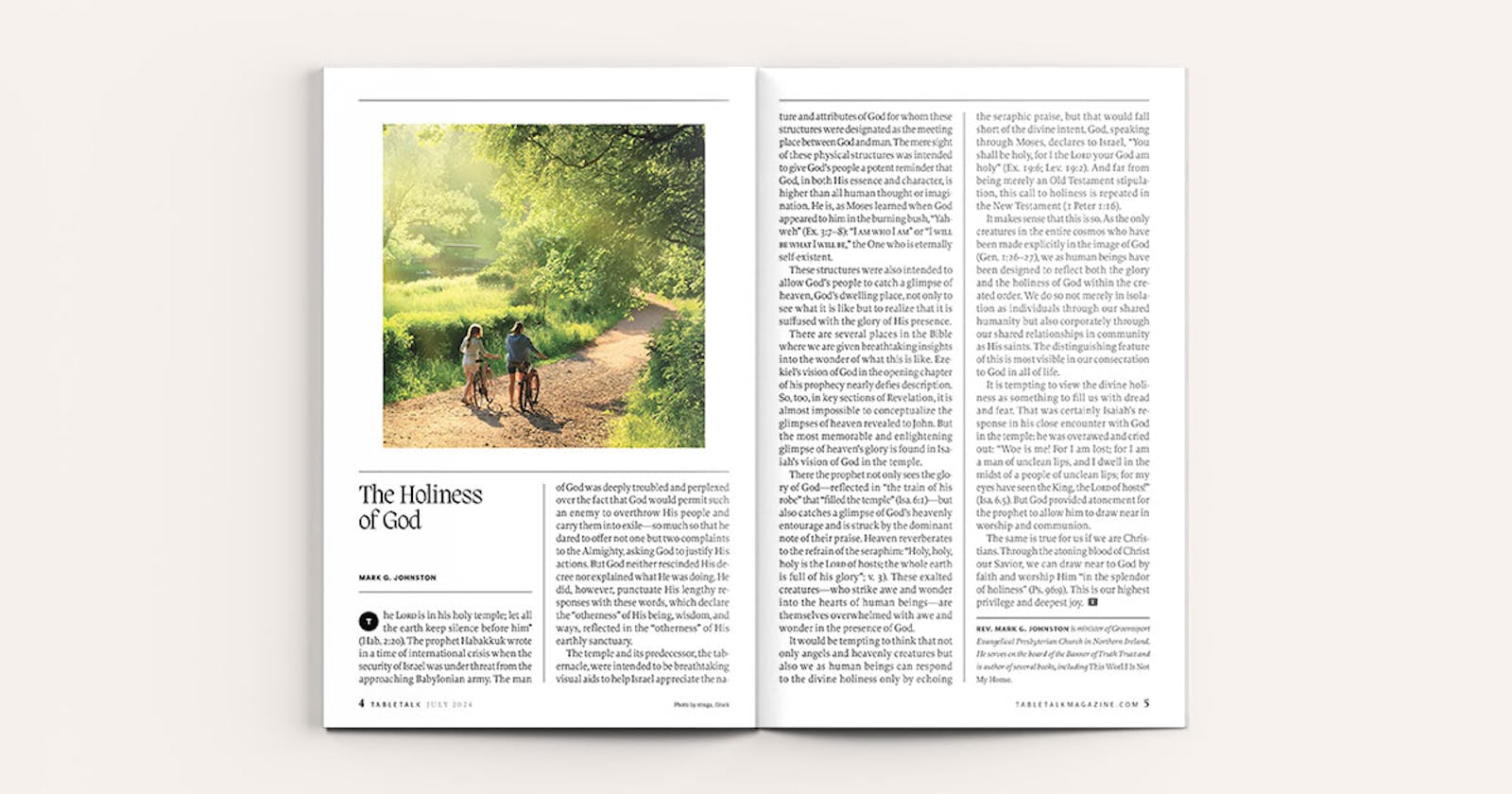
Request your free, three-month trial to Tabletalk magazine. You’ll receive the print issue monthly and gain immediate digital access to decades of archives. This trial is risk-free. No credit card required.
Try Tabletalk NowAlready receive Tabletalk magazine every month?
Verify your email address to gain unlimited access.
The Lord is in his holy temple; let all the earth keep silence before him” (Hab. 2:20). The prophet Habakkuk wrote in a time of international crisis when the security of Israel was under threat from the approaching Babylonian army. The man of God was deeply troubled and perplexed over the fact that God would permit such an enemy to overthrow His people and carry them into exile—so much so that he dared to offer not one but two complaints to the Almighty, asking God to justify His actions. But God neither rescinded His decree nor explained what He was doing. He did, however, punctuate His lengthy responses with these words, which declare the “otherness” of His being, wisdom, and ways, reflected in the “otherness” of His earthly sanctuary.
The temple and its predecessor, the tabernacle, were intended to be breathtaking visual aids to help Israel appreciate the nature and attributes of God for whom these structures were designated as the meeting place between God and man. The mere sight of these physical structures was intended to give God’s people a potent reminder that God, in both His essence and character, is higher than all human thought or imagination. He is, as Moses learned when God appeared to him in the burning bush, “Yahweh” (Ex. 3:7–8): “I am who I am” or “I will be what I will be,” the One who is eternally self-existent.
These structures were also intended to allow God’s people to catch a glimpse of heaven, God’s dwelling place, not only to see what it is like but to realize that it is suffused with the glory of His presence.
There are several places in the Bible where we are given breathtaking insights into the wonder of what this is like. Ezekiel’s vision of God in the opening chapter of his prophecy nearly defies description. So, too, in key sections of Revelation, it is almost impossible to conceptualize the glimpses of heaven revealed to John. But the most memorable and enlightening glimpse of heaven’s glory is found in Isaiah’s vision of God in the temple.
There the prophet not only sees the glory of God—reflected in “the train of his robe” that “filled the temple” (Isa. 6:1)—but also catches a glimpse of God’s heavenly entourage and is struck by the dominant note of their praise. Heaven reverberates to the refrain of the seraphim: “Holy, holy, holy is the Lord of hosts; the whole earth is full of his glory”; v. 3). These exalted creatures—who strike awe and wonder into the hearts of human beings—are themselves overwhelmed with awe and wonder in the presence of God.
It would be tempting to think that not only angels and heavenly creatures but also we as human beings can respond to the divine holiness only by echoing the seraphic praise, but that would fall short of the divine intent. God, speaking through Moses, declares to Israel, “You shall be holy, for I the Lord your God am holy” (Ex. 19:6; Lev. 19:2). And far from being merely an Old Testament stipulation, this call to holiness is repeated in the New Testament (1 Peter 1:16).

It makes sense that this is so. As the only creatures in the entire cosmos who have been made explicitly in the image of God (Gen. 1:26–27), we as human beings have been designed to reflect both the glory and the holiness of God within the created order. We do so not merely in isolation as individuals through our shared humanity but also corporately through our shared relationships in community as His saints. The distinguishing feature of this is most visible in our consecration to God in all of life.
It is tempting to view the divine holiness as something to fill us with dread and fear. That was certainly Isaiah’s response in his close encounter with God in the temple: he was overawed and cried out: “Woe is me! For I am lost; for I am a man of unclean lips, and I dwell in the midst of a people of unclean lips; for my eyes have seen the King, the Lord of hosts!” (Isa. 6.5). But God provided atonement for the prophet to allow him to draw near in worship and communion.
The same is true for us if we are Christians. Through the atoning blood of Christ our Savior, we can draw near to God by faith and worship Him “in the splendor of holiness” (Ps. 96:9). This is our highest privilege and deepest joy.
